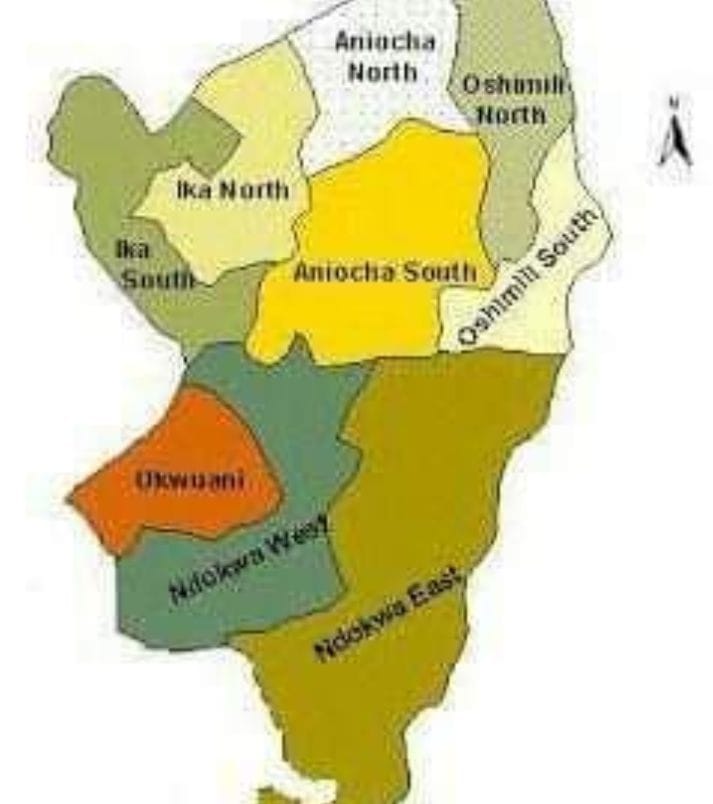By Fidelis Osita
The recent discourse on the creation of Anioma State, spurred by the commendable efforts of our distinguished Senator representing Delta North, The Star Prince, Senator Ned Nwoko, has sparked considerable debate.
While Kester Ifeadi’s piece in the Vanguard raises valid historical points, it is crucial to contextualize this movement within the contemporary political landscape and appreciate the broader implications of this initiative.

The quest for Anioma State has indeed spanned over 50 years, driven by the relentless efforts of esteemed leaders such as Chief Dennis Osadebay, Sen. Nosike Ikpo, and Prof. B.I.C. Ijeomah, among others. The dedication of these pioneers has laid a robust foundation for our current pursuit.
Today, under the leadership of President Bola Ahmed Tinubu, we witness a renewed opportunity to realize this longstanding dream. President Tinubu’s administration has shown a remarkable commitment to addressing structural imbalances and promoting equity across the federation.
The proposal by Senator Nwoko aligns with these national objectives, seeking not just to address regional imbalances but to foster a sense of belonging and development for the Anioma people.
Critics, such as Architect Ifeadi, argues that the move to align Anioma State with the South East geopolitical zone is a political stunt. However, this perspective overlooks the strategic significance of such realignment.
The proposal for the inclusion of Anioma State as the sixth state in the South East seems more focused about leveraging on historical/cultural ties to deepen economic affinities for a more cohesive and prosperous region.
The shallow accusation about political motive for the First Anioma State Governor is very laughable. You have to actualize a proposal undergoing legislative considerations first before wishing about scramble for its governorship.
While it is true that Anioma has thrived within various political entities—Western Region, Midwestern Region, Bendel State, and now Delta State—this does not negate the potential benefits of establishing a distinct state within a region where cultural ties are strong.
Economically, in eventuality, the Oil and gas revenues in Anioma cannot sustain its peoples and communities for too long, hence linguistic affinities with the Igbo-speaking population of the South East offers a unique opportunity for synergy and mutual growth.
Furthermore, the proposed Anioma project has been divinely Headquartered as a National gateway to the landlocked South East.
Senator Nwoko has indeed publicly acknowledged the need for extensive consultations and has already initiated dialogues with key stakeholders. This proactive and inclusive approach ensures that the voices of our traditional rulers, political leaders, and grassroots organizations are heard and integrated into the decision-making process.
But the question begging for an answer is why Kester could not call his Senator to inquire whether or not he has wide consultations in mind. This premature rush to national dailies clearly shows that Arch. Ifeadi is up to something sinister.
His illustrations with Kogi and kwara States are quite unstable, in that one breath vehemently claimed Igbos and Aniomas have no political affinity, then contradicts himself before the paragraph is over.
Again, as the President of OFAAC ( Organisation for the Advancement of Anioma Culture) Kester should be the excited mobilizer for wide and deep consultations for this proposal.
The resistance to change is understandable, given the political pemutations of 2027 Delta North Senatorial seat in context. GOD ALONE decides tomorrow.!
However, the evolving political dynamics and the pressing need for development necessitates a forward-looking perspective.
Just as the Anioma people have demonstrated resilience and adaptability in the past, embracing this new chapter should be easier for unprecedented progress.
In conclusion, as an interested party in this discourse, I hold no brief for Senator Ned Nwoko but I strongly urge notable voices across political divides and giants of industry of Anioma extraction to buy into this project.
Prominent Aniomas such as distinguished Senator Peter Nwaoboshi, Fidelis Oditah, Tony Elumelu, Nduka Obiagbena, to name the likes, should urgently rally round this initiative to
move Anioma State into a strategic alignment with Mr. President’s vision of equity and national cohesion.
It is a call to build on the legacy of our forebears, to harness our cultural affinities, and to chart a course for a brighter, more prosperous future for all Anioma people.
* Dr. Fidelis Osita writes from Arizona, U.S.A




GIPHY App Key not set. Please check settings